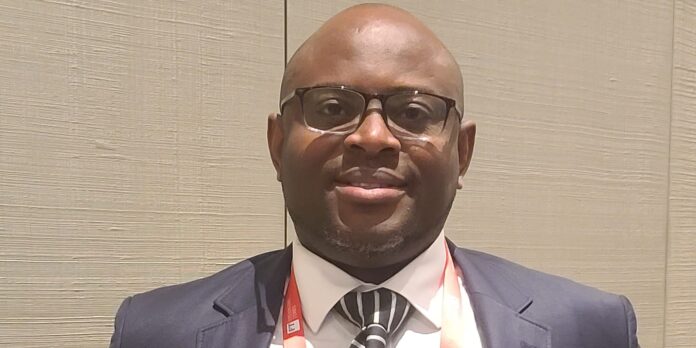In many parts of the world, global brands like Uber, telecom giants, and multinational service providers are synonymous with efficiency, reliability, and customer protection. But in Nigeria, the story often takes a different turn. Foreign companies that uphold world-class standards abroad sometimes treat Nigerians with disregard, offering watered-down services while exploiting gaps in regulation.
Take Uber, for instance. In the UK or other Western countries, Uber operates with strict checks: vehicles must meet safety standards, undergo regular inspections, and remain in top-notch condition. Yet in Nigeria, it is common to find Uber cabs that are rickety, with worn-out interiors, faulty air-conditioning, and in some cases, mechanical issues that pose safety risks. Nigerians are paying for services, but what they get is a shadow of what the same company provides elsewhere.
I had two personal experiences that brought this issue to life.
On Sunday, September 7, I booked an Uber to take me to Ikoyi Crescent for an appointment with a political top shot. While still at my hotel, I received a notification that my driver had “arrived.” I stepped outside the gate, only to find no vehicle in sight. When I called, the driver casually informed me he was still several minutes away as he was misled by the app.
When he eventually pulled up, the car was in such poor condition that it would never qualify as a taxi in London, New York, or even Johannesburg. Still, I got in. The weather was unbearably hot, so I asked him to put on the air conditioner. He fiddled with the controls, pretending to “fix” it, before admitting that the unit was short of gas. I had no choice but to endure almost two hours of stifling heat from Omole to Ikoyi.
To add insult to injury, I was charged ₦11,000 for that ride — for discomfort I could have avoided by paying ₦2,000 to take a public bus to the same destination. My suspicion was later confirmed when, just minutes before reaching Ikoyi, the driver suddenly switched on the A/C and it worked perfectly. He had simply refused to use it earlier, likely to save fuel at my expense.
Then came the final straw. At the end of the trip, Uber charged me an extra fee for “delaying the driver.” I lodged a complaint, explaining that I never delayed anyone — the driver had gone to another location and later claimed the map misled him. In the UK, when I’ve lodged similar complaints, Uber immediately cancels the extra charge and apologises. But in Nigeria, the response I got was a bland message: “We’ve reviewed your price. Although we can’t refund you in this case, your feedback helps us give better service to customers in the future.” Better service, my foot!
As if that wasn’t enough, on Saturday, September 13, I booked another Uber ride, this time to the Murtala Muhammed International Airport. Again, what showed up was a rickety vehicle. The driver, Godwin Augustine, bluntly told me the air conditioner was not working. I was furious. Why should I pay almost ₦10,000 for a 30-minute trip and not get value for money?
To make matters worse, along the way, the driver started begging me for money to pay the toll ticket at the airport. I had to remind him to be professional in his dealings with me. No driver would dare ask a passenger for such in the UK. It made me wonder: are there proper trainings and codes of conduct for Nigerian Uber drivers, or do these companies just throw anyone with a car onto the road?
These experiences are not isolated. They reflect a larger problem. Why does this disparity exist? The answer lies in weak oversight. Regulatory bodies in Nigeria often fail to enforce existing standards or hold foreign operators accountable. Instead of ensuring Nigerians enjoy the same quality of service as their counterparts abroad, regulators appear complacent or receive gratification in order to lower the standards. This sends a dangerous message: that Nigerians deserve less. The things many of these foreign companies do in Nigeria, they can’t try one-tenth of it elsewhere.
But Nigerians are not asking for luxury. They are asking for fairness. If a global brand has the capacity to maintain quality in London or New York, it should do the same in Lagos and Abuja. Anything less is exploitation.
Beyond Uber, the pattern repeats itself across industries. Telecom providers frequently under-deliver on promised services. Airlines compromise on punctuality and safety assurances. Banks impose charges that would never be tolerated elsewhere. In each case, the common denominator is poor regulation.
It is time for a reset. Nigerian regulators must rise above politics, inefficiency, and compromise. Strict enforcement of consumer protection laws, regular audits, and clear penalties for substandard services should be the norm. We must also strengthen consumer advocacy so that Nigerians can demand better.
Foreign companies must understand that Nigeria is not a dumping ground for subpar services. If they want access to our market, they must respect our people. Nigerians are entitled to the same dignity and quality of service that global companies provide elsewhere. Anything less should be unacceptable.
The question is: will our regulators step up, or will Nigerians continue to subsidize global standards by accepting the barest minimum, substandard services at home?
Akinsuyi, former group politics editor of the Daily Independent, writes from United Kingdom. He can be reached at shabydayo@gmail.com



